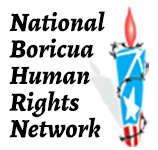EFE
January 26, 2012
https://feeds.univision.com/feeds/article/2012-01-26/ortega-llama-a-luchar-con
Managua, Jan. 26 (EFE).- The president of Nicaragua, Daniel Ortega, said that Latin America is ready to wage a battle with “greater energy” for the independence of Puerto Rico, during a meeting in Managua with the independentista leader of the island, Rubén Berríos Martínez, the government press reported today.
Ortega met in private on Wednesday night with Berríos Martínez and stated that this is “the moment to once again take on” the “accompaniment” of the region with the “struggle” for the independence of Puerto Rico, according to the governmental source “El 19.”
“We’ve done so under much less advantageous, much weaker conditions, in a correlation of totally unfavorable forces,” but “now all the conditions favor waging the battle” for the island, he added.
According to Ortega, when Puerto Rico is an independent State, “then Latin America and the Caribbean will be truly free.”
In this context, he maintained that the region will not be “totally free” while Puerto Rico suffers “manifestations of colonialism;” Cuba suffers with the U.S. detention center in Guantanamo Bay; and the United Kingdom keeps the Malvina islands from Argentina’s sovereignty.
“While we have these manifestations of colonialism in the region, colonialism is alive there, and we can’t allow ourselves to feel totally free,” he affirmed.
Berríos Martínez, former candidate for governor and leader of the Puerto Rican Independence Party (PIP), arrived in Managua on Wednesday and expressed gratitude for Ortega’s endorsement of independence for Puerto Rico during the founding of the Community of Latin American and Caribbean States (CELAC, by its Spanish initials) last December.
Ortega also advocated for the release of Oscar López, “another independence fighter” who “has been in U.S. prisons for the past 31 years.”
Berríos Martínez, a long-time advocate for the independence of Puerto Rico, is honorary president of the Socialist International (SI) and has been vice-president of the Permanent Conference of Political Parties of Latin America (COPPPAL, by its Spanish initials).
In 1993, Berríos published the book Puerto Rico: Nacionalidad y Plebiscito, in which he referred to the PIP’s contribution to convening a plebiscite on the political future of the island, a process that was ultimately cancelled.
Puerto Rico, discovered by Christopher Columbus in 1493 during his second voyage, was a colony of Spain until 1898, when it came under the jurisdiction of the United States, whose Congress extended U.S. citizenship to its citizens in 1917.
Its status since 1952 has been a Free Associated State, which limits its autonomy in various affairs, such as international relations.
The Puerto Rican people have undergone local plebiscites on status in 1967, 1993 and 1998, and have always voted “no” to the option of becoming another state of the United States.
Last March, the White House Working Group on Puerto Rico stated its support for the island to decide by voting “before the end of 2012,” if they wanted to continue being a Free Associated State, become a state, or be independent. EFE
Ortega llama a luchar con “mayor fuerza” por independencia de Puerto Rico
EFE
26 enero 2012
https://feeds.univision.com/feeds/article/2012-01-26/ortega-llama-a-luchar-con
Managua, 26 ene (EFE).- El presidente de Nicaragua, Daniel Ortega, dijo que Latinoamérica está en condiciones para librar una batalla con “mayor fuerza” por la independencia de Puerto Rico, durante un encuentro en Managua con el líder independentista de la isla, Rubén Berríos Martínez, informó hoy la prensa oficial.
Ortega se reunió en privado la noche del miércoles con Berríos Martínez y declaró que este es el “momento de retomar” el “acompañamiento” de la región a la “lucha” por la independencia de Puerto Rico, señala el portal gubernamental “El 19”.
“Lo hemos hecho en condiciones mucho más desventajosas, mucho más débiles, en una correlación de fuerzas totalmente desfavorable”, pero “ahora están todas las condiciones para que libremos la batalla” por la isla, añadió.
Según Ortega, cuando Puerto Rico sea un Estado independiente, “entonces Latinoamérica y el Caribe será verdaderamente libre”.
En ese contexto, sostuvo que la región no estará “totalmente libre” mientras sufra “manifestaciones de colonialismo” en Puerto Rico, en Cuba, con el centro de detención estadounidense de la Bahía de Guantánamo, y en las islas Malvinas, cuya soberanía reclama Argentina al Reino Unido.
“Mientras tengamos esas manifestaciones de colonialismo en la región, está vivo el colonialismo allí y no podemos sentirnos totalmente libres”, afirmó.
Berríos Martínez, excandidato a gobernador y líder del Partido Independentista Puertorriqueño (PIP), llegó a Managua el miércoles y agradeció el respaldo de Ortega a la independencia de Puerto Rico durante la fundación de la Comunidad de Estados Latinoamericanos y del Caribe (Celac), en diciembre pasado.
Ortega también abogó por la liberación de Oscar López, “otro luchador independentista” que “permanece en cárceles norteamericanas desde hace 31 años”.
Berríos Martínez, un antiguo promotor de la independencia de Puerto Rico, es presidente honorario de la Internacional Socialista (IS) y ha sido vicepresidente de la Conferencia Permanente de Partidos Políticos de América Latina (COPPPAL).
En 1993, Berríos publicó el libro “Puerto Rico: Nacionalidad y Plebiscito”, en el que se refiere a la aportación del PIP a la convocatoria de un plebiscito sobre el futuro político de la isla, proceso que al final fue cancelado.
Puerto Rico, descubierto por Cristóbal Colón en 1493, durante su segundo viaje, fue una colonia de España hasta 1898, cuando pasó a ser una jurisdicción de Estados Unidos, cuyo Congreso extendió la ciudadanía estadounidense a sus ciudadanos en 1917.
Su estatus es desde 1952 el de Estado Libre Asociado, lo que limita su autonomía en varios asuntos, como las relaciones internacionales.
El pueblo puertorriqueño ha realizado consultas internas sobre su estatus en 1967, 1993 y 1998, y siempre ha votado “no” a la opción de convertirse en un estado más de Estados Unidos.
El pasado marzo, el Grupo de Trabajo de la Casa Blanca sobre Puerto Rico declaró su apoyo a que la isla decida en las urnas “antes de finales del 2012”, si desea seguir siendo un Estado Libre Asociado, convertirse en estado o bien alcanzar la independencia. EFE


